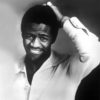calsfoundation@cals.org
Sam Rivers (1923–2011)
Sam Rivers—a multi-instrumentalist, band leader, and composer who was on the cutting edge of jazz for sixty years—spent three formative years in Little Rock (Pulaski County), where he learned, at St. Bartholomew’s Catholic School, how to play the tenor saxophone, the instrument with which he is most closely identified.
Samuel Carthorne Rivers Jr. was born on September 25, 1923, in El Reno, Oklahoma. His father, Sam Rivers Sr., was a singer with both the famed Fisk Jubilee Singers (consisting of students at Fisk University, a historically Black university in Nashville, Tennessee) and the Chicago-based Silvertone Quartet. Rivers’s mother, Lillian Taylor Rivers, was the accompanist for the quartet, which was on tour in Oklahoma when Sam Jr. was born. Both of his parents were college graduates: Rivers’s father graduated from Fisk with a degree in music and his mother graduated from the historically Black Howard University in Washington DC with a degree in sociology; her own father, Marshall W. Taylor, was a minister and musician who published A Collection of Revival Hymns and Plantation Melodies (1882).
Sam Rivers Jr. learned piano and violin at an early age from his mother, who would not allow him to go out and play before he practiced. While living in Chicago, he was injured in an accident, falling over a banister and hitting his head, after which he was not able to stand properly. His mother took a teaching position at Shorter College in North Little Rock (Pulaski County) when Rivers was eleven or twelve, around 1934. There, he attended St. Bartholomew’s School, founded in 1912 for African American students by Bishop John B. Morris of the Diocese of Little Rock. (The high school closed in 1972.) After Rivers graduated from St. Bartholomew’s at age fifteen, he attended Philander Smith College for the summer before leaving Arkansas to attend Jarvis Christian College in Texas.
Stationed in California in the U.S. Navy during the 1940s, Rivers regularly performed with blues singer Jimmy Witherspoon, a native of Gurdon (Clark County). Rivers left the navy in 1945 and attended the Boston Conservatory of Music from 1947 to 1952, where he studied with composer Alan Hovhaness, who introduced Rivers to the idea of “free music,” or music that was not prescribed by standard tempo patterns and harmonic progressions. Starting in the 1950s, Rivers played with most of the major musicians in jazz, including Miles Davis, Charlie Parker, Dizzy Gillespie, Herbie Hancock, Billie Holiday, Bill Evans, and dozens of others.
Rivers’s musical career could be divided into three eras, the first being the Blue Note era in the 1960s, during which he recorded with the Blue Note record label, often performing with the brilliant drummer Tony Williams. The initial significant recording Rivers made as a leader on Blue Note was the album Fuchsia Swing Song (1965), which broke ground in experimental jazz. The album had Rivers on tenor saxophone, Williams on drums, Jaki Byard on piano, and Ron Carter on bass.
The second era was during the 1970s, when Rivers and his wife, Beatrice Rivers, operated a jazz performance space in New York City called Studio Rivbea. The New York Times said the studio “served as an avant-garde hub through the end of the decade, anchoring what would be known as the loft scene.” While Rivers and his wife ran Studio Rivbea, he also recorded on the Impulse label and led jazz groups, including an orchestra, a woodwind ensemble, and a trio.
The final period of Rivers’s long career had him at the center of a jazz community in Orlando, Florida, where he lived for twenty years, leaving New York in his late sixties for a warmer climate.
Sam Rivers died in Orlando on December 26, 2011. His wife died in 2005, and he was survived by three daughters and one son.
For additional information:
Chinen, Nate. “Sam Rivers, Jazz Artist of Loft Scene, Dies at 88.” New York Times, December 28, 2011. https://www.nytimes.com/2011/12/28/arts/music/sam-rivers-jazz-musician-dies-at-88.html (accessed January 11, 2023).
Sam Rivers. https://samrivers.com/ (accessed January 11, 2023).
“Sam Rivers.” The Blue Note. https://www.bluenote.com/artist/sam-rivers/ (accessed January 11, 2023).
Sam Rivers Obituary. The Guardian, December 30, 2011. https://www.theguardian.com/music/2011/dec/30/sam-rivers (accessed January 11, 2023).
Jeff Waggoner
Nassau, New York
 Divergent Prosperity and the Arc of Reform, 1968–2022
Divergent Prosperity and the Arc of Reform, 1968–2022 Music and Musicians
Music and Musicians




Comments
No comments on this entry yet.